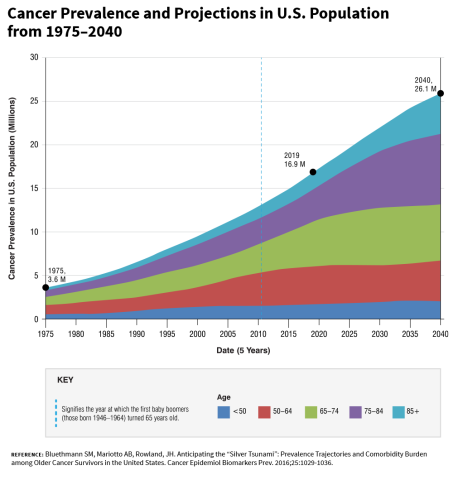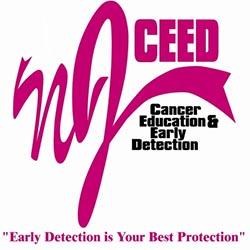Together, these efforts are a collective of expertise and community organizations to deliver prevention education, screening, and early detection services that contribute to a healthy and equitable community.
Prevention & Early Detection
Prevention and early detection can have the greatest effect on reducing the burden of cancer. More than 40% of newly diagnosed cancers in the United States are potentially avoidable. Cancer is the second leading cause of death in New Jersey and the U.S. One in two men and one in three women will develop cancer during their lifetimes. Nobody is immune from getting cancer and multiple factors both inside and outside the body can contribute to the development of cancer. However, many cancers are preventable by reducing risk factors or getting appropriate vaccinations. Screening is effective in identifying some types of cancers in early, often highly treatable stages. Some risk factors for cancer can be avoided or controlled. For example, people can choose to avoid smoking, modify their diet, and increase their exercise. Other risk factors, such as a person’s age, race, family history of cancer, and genetics are not possible to modify.

The risk of developing some of the most common cancers – like colorectal, breast, cervical, lung, and prostate can be greatly reduced by detecting them early and adopting healthy habits. These same healthy habits can help survivors or those going through treatment to achieve optimal outcomes.
Please see Cancer Survivorship for New Jersey, Stats & Facts.
Outreach Education & Programs
As part of our commitment to the health and well-being of the community, our expert clinicians are available to speak to your organization, group, business, school, or faith-based organization on a variety of cancer-related topics. This free service is designed to educate the community on prevention strategies, early detection approaches, such as cancer screening programs and quality of life for survivors. Educational programs also detail how individuals can make lifestyle changes to reduce their risk of developing cancer and can practice screening techniques and prevention. Cancer education and early detection services are provided through two distinct and synergistic entities charged to address the State’s cancer burden and work toward improving health outcomes for community members. These include:
Hunterdon-Mercer Chronic Disease Coalition

The Hunterdon-Mercer Chronic Disease Coalition promotes cancer prevention and supports the needs of the growing cancer survivor population. These efforts span a broad spectrum of initiatives ranging from individual needs assessments to large group presentations and workshops. Please click here for more information on initiatives, education, and survivorship programs.
NJ Cancer Education & Early Detection (NJCEED)

The New Jersey Cancer Education & Early Detection (NJCEED) Program provides comprehensive outreach, education and screening services for breast, cervical, colorectal and prostate cancers. Please click here for more information on the program, eligibility, and screening guidelines.
The Office of Cancer Control and Prevention (OCCP) coordinates comprehensive cancer control efforts in New Jersey and participates in the national efforts of the CDC to establish state-based comprehensive cancer control plans, conduct prevention of cancer risk factors, enhance early detection of preventable cancers, and facilitate survivorship through the activities of its Chronic Disease Coalitions.
Family Medicine (Primary Care)
Your family medicine physician is specifically trained to be your first point of entry into the healthcare system and will be your advocate in coordinating your ongoing health care. You and your family medicine physician will work — as a team — to meet your medical, physical, and emotional healthcare needs.
Your family medicine physician provides comprehensive health care, routinely monitors your overall health, and partners with you to make healthcare decisions. If changes to your medical condition indicate a cancer diagnosis or that you require the care of a specialist, your physician will make recommendations and coordinate your care. We encourage you to communicate regularly with your family medicine physician.
Please click here to find a family medicine physician near you.